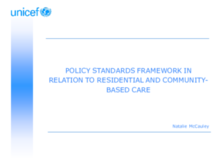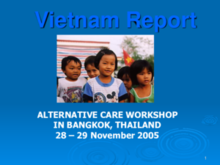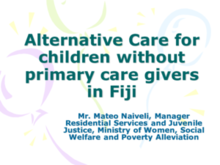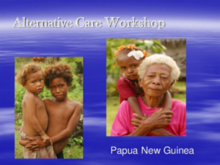Displaying 1381 - 1390 of 1463
This presentation from UNICEF was given at the Alternative Care Workshop in Bangkok in November 2005. It outlines the standards and principles for residential and community-based care in the region.
This presentation was given at the Alternative Care Workshop in Bangkok in November 2005.
This presentation was given at the Alternative Care Workshop in Bangkok in November 2005. It provides an overview of the situation of children without parental care, or primary caregivers, in Fiji and the child welfare system in the country.
This presentation was given at the Alternative Care Workshop in Bangkok in November 2005.
This presentation was given at the Alternative Care Workshop in Bangkok in November 2005.
This presentation was given at the Alternative Care Workshop in Bangkok in November 2005. It provides an overview of the situation for children without parental care in China, the legal framework for child protection in the country, and the social welfare institutions that support children's care.
This report provides baseline information on conditions in orphanages in the Russian Federation. This information addresses three major limitations in the literature on the development of children residing in substandard orphanages and those adopted from such environments.
Russia is home to one of the fastest-growing AIDS epidemics in the world, but the government has done little to address the problem.
This report reviews the faltering progress made in childcare reform across Central and Eastern Europe and the former Soviet Union over the 15 years since the ‘orphanages’ of Romania were revealed to the world.
Describes and analyses abuse in institutional care using a case study of a home for girls in the developed world.








